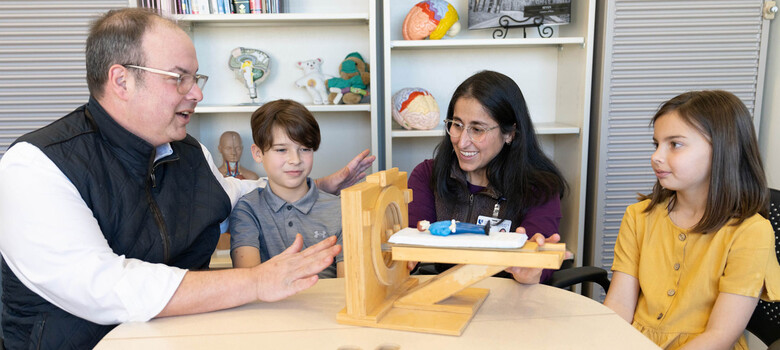Tips for Healthy Children’s Voices

Find tips to keep your child's voice healthy now and in the future.
Children love to laugh, sing, and make funny noises. However, prolonged loud voices may affect your child’s voice quality, and can possibly lead to hoarseness, weak or strained voices down the road. To keep your child’s voice healthy now and in the future, pediatric voice specialist Eileen Raynor, MD, and speech pathologists Hilary Bartholomew and Meghan Esper offer these tips. You may enjoy the quiet time too!
Tips to Keep Your Child’s Voice Healthy
Take Talking Breaks.
Aim for 30-60 minutes of voice rest each day. This may consist of several shorter periods each day based on your child’s age.
Encourage Quiet Time.
Include non-vocal activities in the day, like reading or screen time.
Avoid Irritants.
Keep your child away from second-hand smoke and aerosol sprays (like air fresheners and hairspray).
Teach Turn Taking.
Teach your children to take turns during conversations so they aren’t compelled to use a loud voice to talk over each other.
Turn Down the Volume.
No need for the television or mobile devices to be at high volume. You can all speak to each other more quietly and reduce the need for noisy activities – and the need to talk over the sounds – when the volume is turned down.
Be a Good Role Model.
Don’t yell in the house or use loud voices. Encourage your child to do the same.
Explain Inside and Outside Voices.
Emphasize the appropriate places to use each type of voice.
Spend One-on-One Time with Your Child.
It reduces the need for your child to compete for your attention at other times in the day.
Encourage Healthy Voice Habits.
Avoid caffeine and energy drinks. Sipping water throughout the day will keep your child’s vocal cords hydrated and lubricated and less prone to injury. This is especially important for children who take allergy or asthma medications, since those can dry out the vocal cords.
Discourage Constant Throat Clearing.
It contributes to throat irritation and hoarseness. Instead, encourage your child to sip water when feel the need to clear their throat.
Seek Help.
If your child’s voice is hoarse, raspy, or weak, you may want to consider an evaluation to determine whether treatment with a voice therapist could help. Voice therapists can teach techniques to help your child’s vocal health.




